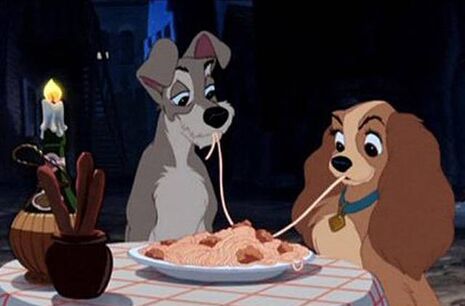Honestly, love: feminism vs. romance?
In her second column, Ella Waters questions whether romance and feminism can co-exist

My mother believes that, on the early dates, the man should pay for the meal. Of course, the girl should offer to pay her share out of politeness, but with the expectation that this offer will be met with a resolute refusal. Such principles were never forced upon me, but they have diffused somewhat into my brain by virtue of proximity. As I began to understand feminism more clearly and to question what it means to me, these principles instilled in me by my mother (and by society and, often times, the media too) became more problematic. Could I still believe in the traditional values of courtship while identifying as a feminist?
The concepts of romance and feminism are, I feel, very different beasts. With romance I can choose what to accept, but I find feminism to be an all-or-nothing deal. Those unwilling to self-identify as feminists often argue that their reason for shrinking from the identifier lies in their belief that women are equal to men, but that they don’t necessarily want this equality in every instance of their lives. Although splitting the bill fails to bother me that much anymore, there is always a faint twinge of misgiving as I eagerly accept my date’s offer. If he does pay, I feel as if I’m selling out on my beliefs for the sake of a boy, but if he doesn’t, the date just doesn’t feel as special – I don’t feel as special.
Admittedly, there is something wrong with this statement: I shouldn’t look to a monetary gesture to validate how someone feels about me, yet it seems impossible to shake the notion that such a gesture often determines the success of a date. Similarly unshakable is the fact that romance is founded on ideas of chivalry and principles from medieval times involving brave knights and damsels in distress. This is what bothers the feminist in me: I am not a damsel in distress and do not wish to be viewed as such by my male counterparts. I want a man to recognise that I am strong, independent and capable, but, at the same time, I don’t want the chivalrous gestures of care and attention to cease.
It’s often these small actions that form the moments when we are reminded just how much our partner cares. Am I, then, guilty of a double-standard – looking to be treated as an equal, but also wishing to be viewed as something precious? If a healthy relationship is based on an equal amount of give and take, then what is it that women are expected to do in return? Again, if we look at it historically, women were expected to make repayments for love and protection in the form of domestic chores such as cooking and keeping the house and the fulfilment of her conjugal duties. It will come as no surprise that such a view of things is unacceptable nowadays. Thus, another conflicting double standard appears; women want men to be romantic in a (more or less) traditional sense, but refuse (rightly) to adhere to the domestic role assigned to them.
As much as we tell ourselves that our society is progressive and modern, the ancient courtship rituals still appear everywhere – in films, books and, most importantly, in real life. And many of us, however guiltily, enjoy them – the door being held open, the offer to carry a heavy bag; all these gestures make us feel special. What makes things difficult is that we can’t really break away from valuing such gestures without an after-taste of inadequacy – is it wrong for an intelligent, free woman to enjoy these attentions? The conflict looks set to continue, as feminism has not yet found a way to reconcile itself with these traditional ideals. If that means simultaneously blushing with delight and cringing in self-admonishment as my date holds open the door, then I’ll just have to live with the discomfort for now.
 News / Colleges charge different rents for the same Castle Street accommodation2 March 2026
News / Colleges charge different rents for the same Castle Street accommodation2 March 2026 News / News in Brief: waterworks, wine woes, and workplace wins 1 March 2026
News / News in Brief: waterworks, wine woes, and workplace wins 1 March 2026 News / Climate activists protest for ‘ethical careers policy’1 March 2026
News / Climate activists protest for ‘ethical careers policy’1 March 2026 News / Angela Merkel among Cambridge honorary degree nominees27 February 2026
News / Angela Merkel among Cambridge honorary degree nominees27 February 2026 News / Private school teacher who lied about Cambridge degree barred from teaching27 February 2026
News / Private school teacher who lied about Cambridge degree barred from teaching27 February 2026









